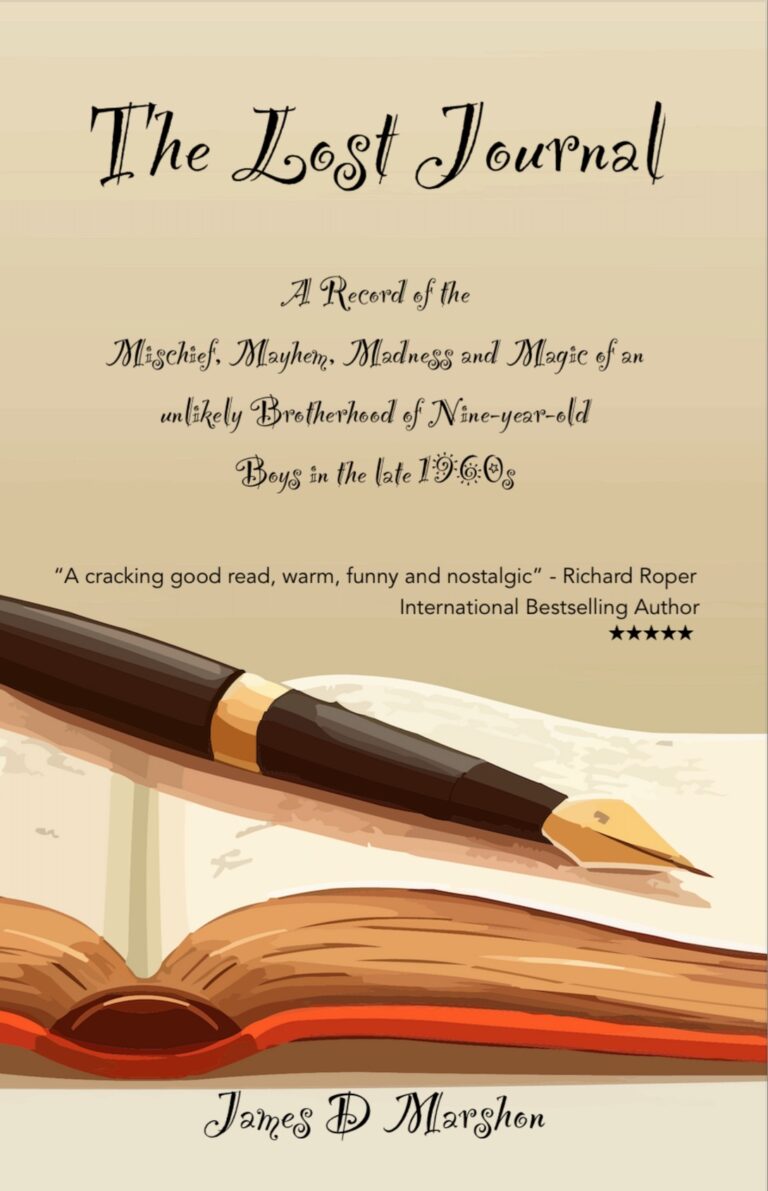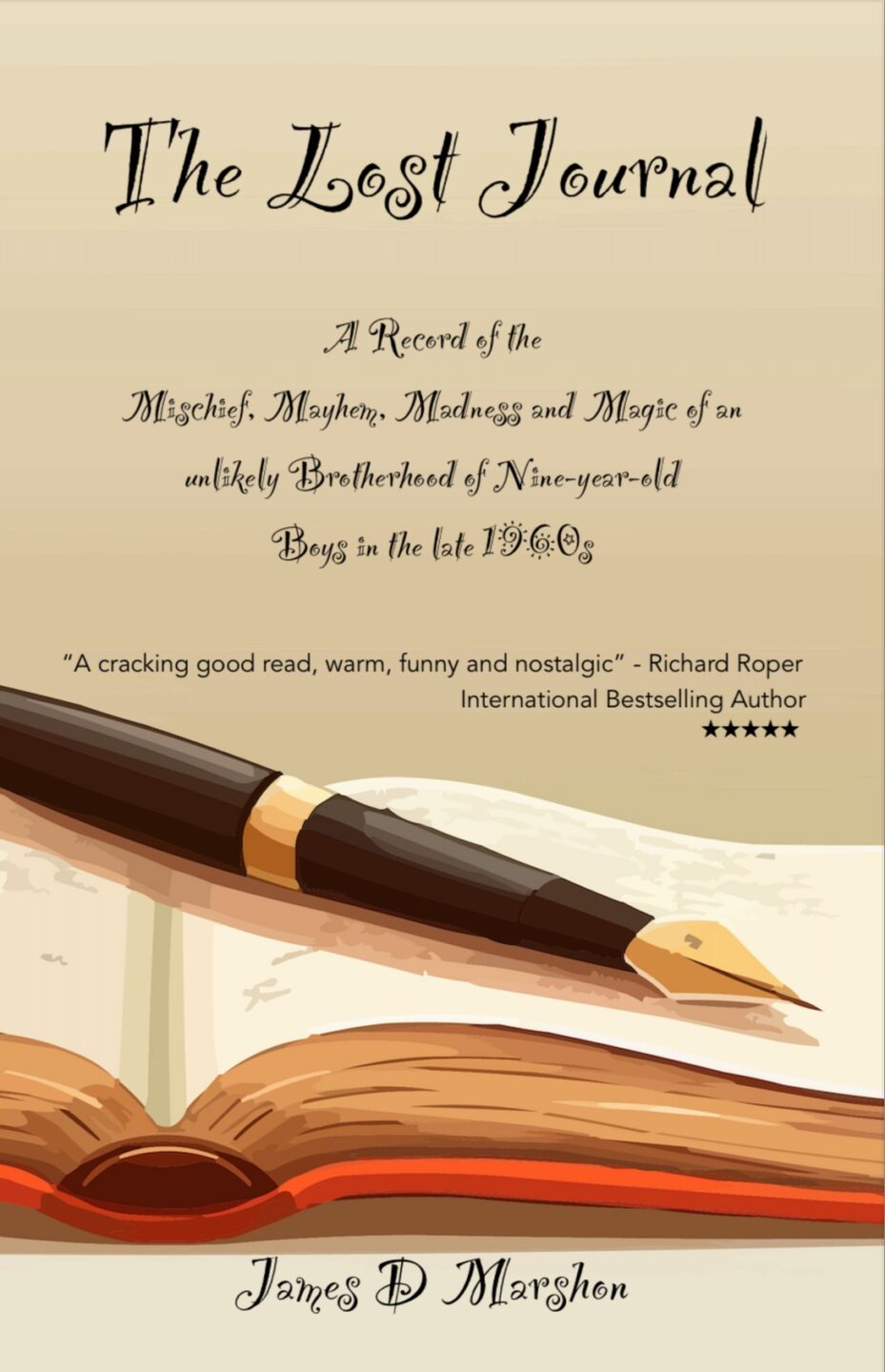In THE LOST JOURNAL, James Marshon offers an only-slightly fictionalized account of academic year ‘67-’68, when he was nine years old. Here, there is very little of high politics, the Vietnam War, or other weighty affairs. Nonetheless, young James experiences an astounding, endlessly entertaining run of misadventures—including “the threat of nuclear attack, ear acid poisoning, a thrashing from our Headmaster, a ten-ton locomotive, the sinking of the very dubious raft, next-door cats, vampires in the shed, my mother’s driving, not to mention her cooking, a raging inferno, murderous rugby games, aristocratic ghosts, and very hard cricket balls.”
THE LOST JOURNAL is very affectionate and very British, peopled with boys like Raymond Pugsley, Chippie Simpkins, and Tiny Teddy Fothergill. The incidents themselves are outlandish but clearly relatable, regardless of their English setting—the childhood stuff of secret boys’ clubs, sport, and a muddled fear of the adult world. THE LOST JOURNAL has an energetic prose style, fond of a dry joke or an absurd set-up, shot through with entertaining descriptive language (this reviewer was fond of a gentleman “whose beard was so enormous he looked like he was chewing a cat”). But that prose also has the power to carry the occasional moment of silence and gratitude, as when young James returns home from holidays in France: “Even in Manchester, the west wind blew soft and warm, the grass was green, and the scent of clematis and jasmine hung in the air like a gentle benediction.”
THE LOST JOURNAL does have a few flaws. The text needs a final round of line-edits, especially around misplaced quotation marks (“‘Easy he scoffed, can’t be more than forty yards out’, he stated confidently”) and homophonic misspellings (“on mass,” “a rye smile”). More importantly, however, the book seems stuck for an audience. This is a creative nonfiction memoir by an adult man about his childhood in the ‘60s, so it’s unclear whether children or adults are the intended readers. The vocabulary and cultural references suggest this is a nostalgic piece, intended for the narrator’s peers, but THE LOST JOURNAL is ultimately just a collection of funny stories. There’s no evident structure (besides the chronological), rising action, or reflection; there are moments of introspection, but they never add up to a real argument or perspective for an adult reader to chew on. As such, the text has the affect of exactly what it is: a string of stories that you really had to be there for to care about.
That being said, there are plenty of laughs and nuggets of beautiful prose for THE LOST JOURNAL’s readers to enjoy.
Although the target audience for James Marshon’s THE LOST JOURNAL is somewhat unclear, it still boasts a stock of amusing anecdotes and a loquacious, energetic style.
~Dan Accardi for IndieReader


